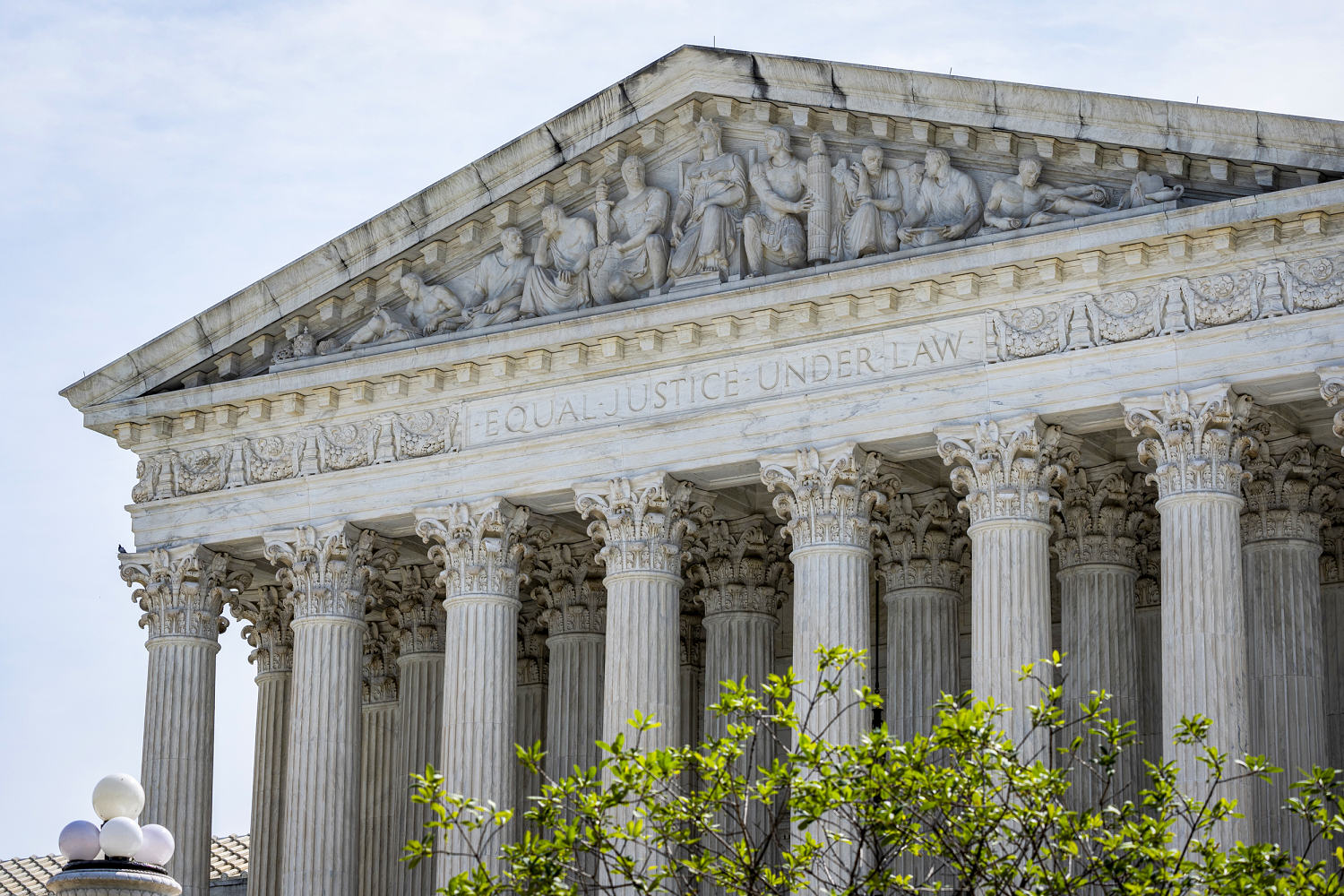Share this @internewscast.com

WASHINGTON — The latest attempt by conservatives to undermine the federal bureaucracy reaches the Supreme Court on Wednesday as the justices consider whether the Federal Communications Commission unlawfully wields power via a program that subsidizes telecommunications services in underserved regions.
The court has a 6-3 conservative majority that has in a series of recent decisions undercut the authority of government agencies and advanced a deregulatory agenda largely favored by business interests and Republicans.
The case concerns whether Congress in a 1996 law exceeded its authority in setting up the Universal Service Fund, which requires telecommunications services to submit payments to subsidize “universal service” in low-income and rural areas.
The fees, which are passed on to customers, raise billions of dollars a year that are spent on providing phone and internet services, including for schools, libraries and hospitals.
A second, connected legal question is whether the FCC could delegate its own authority to a private corporation it set up called the Universal Service Administrative Company to administer the fund.
The Supreme Court also asked both sides to make arguments on whether the case is moot, meaning the justices could dispose of the case without issuing a full ruling.
Although the Trump administration has unleashed an aggressive and fiercely contested effort to weaken federal agencies by firing thousands of workers, its lawyers are defending the FCC in the case. The issue reached the Supreme Court before President Donald Trump took office in January, and the Justice Department has not changed its legal position from the Biden administration’s.
The Trump administration has sought to exert the powers of the presidency at the expense of Congress and the judiciary, so in that sense its position in the case is consistent with that approach.
The case touches upon a legal principle called the “nondelegation doctrine,” which some conservatives favor — the theory being that Congress has limited powers to delegate its lawmaking authority to the executive branch.
The current court has not yet embraced the idea, although several members of the court have expressed support for it. If the court were to endorse it, agencies would face new limits on their powers to implement existing laws and programs that seek to enforce open-ended laws enacted by Congress.
Critics of the legal status quo say such a move would restore the correct balance between Congress and the executive branch under the Constitution’s separation of powers principle by ensuring that lawmakers are in control of imposing taxes and spending the money they generate.
Lower courts were divided over the issue, with both the FCC and a coalition led by Consumers’ Research, a conservative group, asking the Supreme Court to weigh in.
Opponents call the Universal Service Fund fee a form of tax and say only elected officials, not bureaucrats, have the power to impose it. The 1996 law is particularly problematic because it does not tell the FCC how much money it can raise via the program, the challengers’ lawyers argue.
In court papers, lawyers for Consumers’ Research described the program as a “bureaucrat’s dream” and a “nightmare scenario.”
The Republican attorneys general of West Virginia and 14 other states filed a brief backing the challengers. While “many programs” in their states have benefited from the FCC program, they “don’t need to take a position on whether this law is a good as a matter of policy,” West Virginia Attorney General John McCuskey wrote.
The Biden administration appealed to the Supreme Court after the New Orleans-based 5th U.S. Circuit Court of Appeals ruled against the FCC.
The argument laid out in court papers by the Justice Department in both the Biden and the Trump administrations is that while Congress cannot “delegate legislative power to executive agencies,” it can “authorize an agency to exercise discretion in implementing a statute.”

















